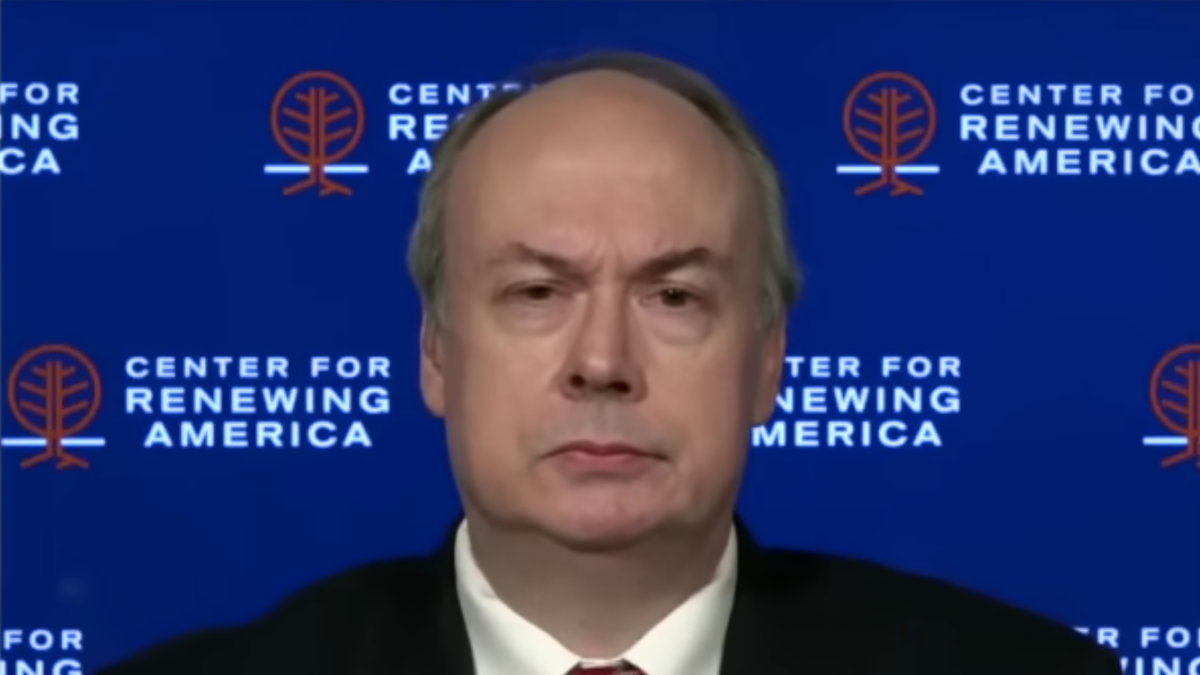Both the Office of the Director of National Intelligence and the Department of Justice refuse to hand over several key election integrity documents that would aid Trump-era DOJ official Jeffrey Clark’s defense against the D.C. Bar, which seeks to discipline him for noting inconsistencies in the 2020 election.
Clark, who was also named as one of the 19 “co-conspirator” targets in Democrats’ wide-ranging election indictment in Fulton County, Georgia, is scheduled to appear at an evidentiary hearing on Jan. 9, 2024 after the legal licensing association claims he violated their rules by drafting a letter to Peach State officials noting the DOJ “identified significant concerns that may have impacted the outcome of the [2020] election in multiple States, including the State of Georgia.”
Clark chose not to send the letter after his DOJ superiors objected to signing it and then-President Trump opted against having it sent. The D.C. Bar, however, proceeded to charge Clark with “attempted dishonesty” and “attempted serious interference with the administration of justice.” Both of those charges, Clark’s lawyers assert, are “legally and factually ridiculous for a compelling set of reasons.”
Clark requested several key pieces of evidence related to election issues from the ODNI and DOJ to prepare for his upcoming defense in the D.C. Bar case. His attempt to secure due process, however, was hampered by stonewalling from both the ODNI and DOJ.
In late October, Clark’s legal team asked the ODNI to hand over classified documents detailing evidence of foreign election interference, which Clark interacted with during his time in the Trump administration but could not take with him when he left.
The lawyers specifically requested to review both the draft and final versions of the intelligence agencies’ 2020 election issue assessment and the ombudsman letter and report intelligence agencies shared with the Senate Intelligence Committee on Jan. 6, 2021. They also asked for access to the classified version of then-Director of National Intelligence John Ratcliffe’s dissent memo which concluded that the intelligence agencies’ evaluations of China’s role in influencing U.S. elections “fall short.”
ODNI rejected the request on Nov. 28, citing the 1951 Supreme Court case Touhy v. Ragen that ODNI says grants it the right to “determine whether to provide information.” The agency also claimed the lawyers’ solicitation of the documents did “not contain sufficient detail to permit ODNI officials to make this determination” or explain “how this testimony is relevant” to Clark’s case.
“In your request, you only briefly list broad categories of testimony topics, without any details on the specific testimony sought or how this testimony is relevant to the bar disciplinary proceedings or your client’s claims or defenses in these proceedings,” ODNI complained.
Two days after receiving the denial, Harry MacDougald, a managing partner at the firm representing Clark, sent a reply scolding the ODNI for its “arbitrary decision-making.”
“My letter identified the subject matter with reasonable specificity, particularly in light of the reference to the specific briefing and the specific documents in question, and ought to have been sufficient for your office to make the determinations contemplated by these regulations,” he wrote on Nov. 30.
MacDougald also noted that the Touhy regulations ODNI used to justify its denial “do not mention relevance as a ground of objection.”
ODNI’s demands for more details, he warned, “would likely intrude on the attorney work product and trial preparation privileges by revealing the mental impressions of counsel and trial strategies.”
Despite his insistence that ODNI should not have rejected the initial request, MacDougald submitted an affidavit outlining more proof that the documents in question are essential to Clark’s case.
Ratcliffe’s memo and other “criticisms of the work going into the [intelligence agencies’ election integrity] Assessment” in particular, MacDougald wrote, “support the reasonableness of questioning claims like those asserted by the former Director of CISA, Christopher Krebs, that the 2020 election was the most secure ever, and of questioning the purported conclusion of the Assessment that there was no meaningful foreign interference in the election.”
“In part, the charge of attempted falsity rests on the contention that there was no basis whatsoever for the proposed positions in the draft letter, or for believing there was anything irregular or worthy of further investigation in the 2020 election. Mr. Ratcliffe’s testimony and the documents that we have requested are logically relevant to rebut this contention,” MacDougald concluded, noting that based on evidence he has reviewed “even the harshest criticisms by the Ombudsman and Mr. Ratcliffe were much, much too kind.”
Clark’s lawyers told The Federalist they also asked the DOJ for the testimonies of several former U.S. attorneys and to share documents about domestic election concerns in swing states, which included potential instances of “suitcase” ballots and vote switching, twice but that the agency did not respond to their request.
The lack of documents not only hampers the former DOJ official’s defense but also suggests a staunch unwillingness by the federal government to publicize its findings and analysis of the 2020 election problems.








